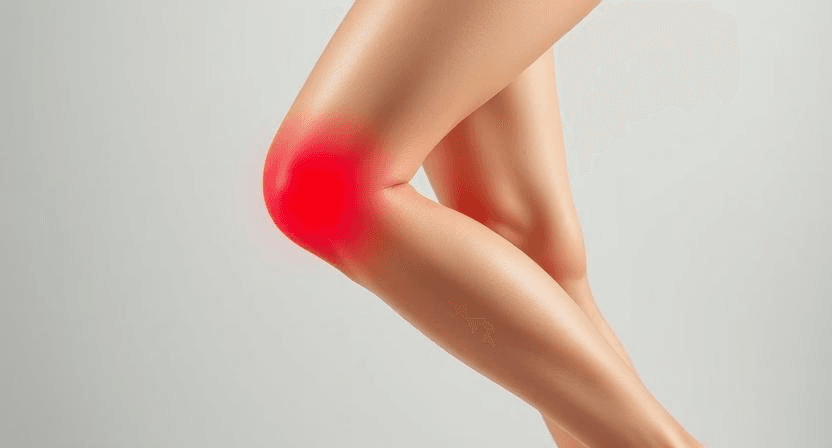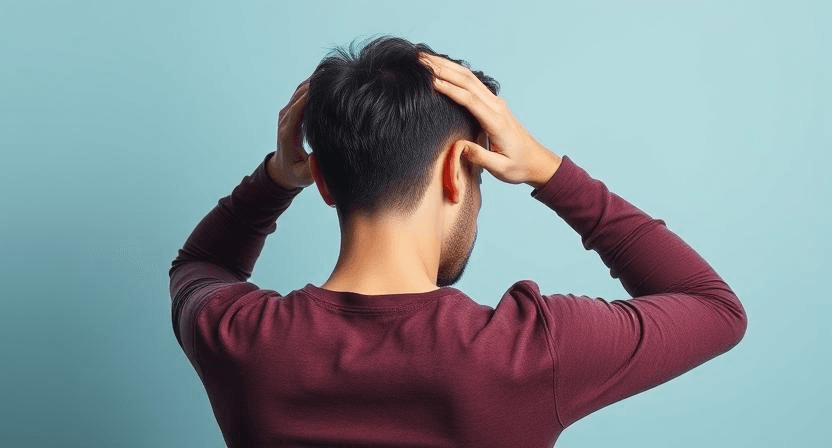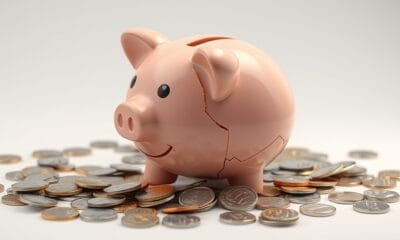You Better
How to Break Your Bad Habits and Transform Your Life

How to Break Your Bad Habits and Actually Change Your Life
Let’s face it—you’ve tried everything to quit your bad habits. You’ve promised yourself. You’ve set a date. You’ve even told your friends about how you’re “totally going to change this time.”
But somehow, you keep slipping back into old patterns. Sounds familiar, doesn’t it? Well, don’t worry. This isn’t one of those articles that will make you feel worse about not being perfect.
Instead, let’s figure out how you can actually break your bad habits and transform your life—one small step at a time.
And trust me, it’s possible. Every successful habit-breaker out there has been where you are right now: stuck, frustrated, and maybe a little hopeless. But here’s a secret: the process isn’t magic. It’s about strategy, commitment, and a little bit of psychology.
Oh, and before we dive in, here’s something worth keeping in mind:
“We are what we repeatedly do. Excellence, then, is not an act, but a habit.” — Aristotle
Sound good? Alright, let’s get started.
Why Bad Habits Feel Impossible to Beat
First, let’s understand why bad habits are so hard to break. Habits, whether good or bad, are your brain’s way of creating efficiency. Your brain loves routines because they save energy.
Every time you smoke, bite your nails, or scroll endlessly on your phone, your brain releases a little dose of happy chemicals (dopamine), making it hard to say no the next time.
Also, bad habits are often tied to emotions. Feeling bored? You open social media. Feeling stressed? You grab junk food.
So breaking a bad habit isn’t just about stopping the behavior—it’s about reshaping the triggers, cravings, and rewards linked to it.
Step 1: Identify Your Triggers
The first step to breaking a habit is understanding when and why it happens. You can’t fix what you don’t know is broken.
Ask yourself:
- When do I usually do this?
- What triggers this habit? (e.g., stress, boredom, specific environments)
- How do I feel right before and after doing it?
For example, let’s say you snack on chips every night while binge-watching Netflix. The trigger could be your tired brain associating TV time with food.
Create awareness. Even journaling your habits can shine a light on patterns you never noticed.
Step 2: Swap, Don’t Stop
Here comes the good part. Most people fail at breaking bad habits because they try to stop them cold turkey. For example, you think, “I’ll just quit smoking tomorrow,” and expect it to stick. Yeah, good luck with that.
Instead, try replacing the bad habit with a better one. This trick is called “habit substitution.”
Here’s how it works:
- Instead of stress-eating chips, try chewing gum or drinking water when you feel the urge.
- Replace your phone scrolling habit with a quick 5-minute walk or stretching.
- Trade biting your nails for a stress ball or fidget toy.
Substitution works because it gives your brain something new (and positive) to latch onto while letting go of the old pattern.
Step 3: Start Small—Seriously, Smaller Than That
I know. You’re excited to change your life. Who wouldn’t want to toss all their bad habits out the window overnight?
But here’s the thing about massive changes—they fail. Instead of aiming big, aim ridiculously small.
Let me give you an example. If your bad habit is skipping workouts, don’t promise yourself you’ll exercise for an hour every day. Instead, start with 5 minutes. Yes, just 5 minutes.
Sounds laughable, right? But here’s the magic: those 5 minutes get you started, and once you’re in motion, momentum naturally pulls you further.
Step 4: Make It Hard to Stick to the Bad Habit
No one does things that are inconvenient. The same goes for your bad habits. Make them hard to access, and you’re less likely to fall back into them.
Try these:
- If you’re addicted to junk food, don’t keep it in the house.
- Can’t stop wasting time on your phone? Delete the addicting apps or use website blockers.
- Spend too much on online shopping? Remove your saved payment details so it takes more effort to order.
The harder it is to do the thing, the less likely you’ll do it. Simple psychology.
Step 5: Use Accountability
Look, nobody likes to admit they have flaws. But if you’re serious about changing, telling someone you trust can make all the difference. When someone else knows you’re trying to quit a bad habit, it makes you less likely to cheat.
Here are some ways to stay accountable:
- Share your goal with a friend or family member.
- Join a support group or community (online or offline) for people working on similar habits.
- Use apps or tools to track your progress.
And don’t forget to celebrate the small wins! Every step forward, no matter how tiny, deserves a high-five.
A Handy Table: Tips to Beat Your Bad Habits
| Step | Action |
|---|---|
| Identify Triggers | Notice when, where, and why your bad habit happens. |
| Substitute the Habit | Replace the bad habit with a healthier or more positive alternative. |
| Start Small | Make tiny, realistic changes that you can stick to. |
| Make It Harder to Access | Remove temptations or add friction to your bad habit. |
| Stay Accountable | Share your goals and track your progress with someone you trust. |
Why Patience is Non-Negotiable
Here’s the truth—you won’t master this in a week. Breaking a bad habit takes time. Experts say it can take anywhere from 18 to 254 days to form a new habit and break an old one. So if you slip up, don’t beat yourself up over it.
What matters is consistency over perfection. Progress isn’t linear, and that’s okay. The goal isn’t to be flawless but to keep moving forward, even when it’s tough.
Quick Recap
To change your life and ditch your bad habits, you need:
- Awareness of your triggers.
- A healthier habit to replace the old one.
- To start as small as possible.
- To make your bad habit harder to access.
- Someone who keeps you accountable along the way.
In the end, it’s all about becoming a little better each day. Remember, you’re not alone in this. Everyone has bad habits, but the ones who succeed are the ones who take action.
So, what’s the first step you’re taking today? Whatever it is, start small, and watch how those little changes add up to something huge. You’ve got this!


You Better
Knee Pain Relief in Minutes—No Surgery Needed


Knee aches can be one of the most debilitating symptoms to endure, affecting everything from your range of motion to your overall enjoyment in life. Whatever its cause – arthritis, overuse, an injury, or inflammation – a quick and effective remedy is a high priority for many with aches and pains in the knees.
With an abundance of drugs and therapies out there, not all of them, however, are accessible and natural. One such surprisingly effective remedy? A frozen cabbage wrap.
The simple, all-natural remedy reads almost laughably in an old-fashioned book of traditional remedies, but it’s getting noticed for its effectiveness in shrinking aches, fighting off aches, and soothing aches in a sore knee joint. In this article, we’ll break down in simple, step-by-step detail how to use a frozen cabbage wrap for a quick and effective remedy for aches in a sore knee, its benefits, and present all information you’ll need to make this simple technique a part of your routine.
How Frozen Cabbage Wraps Can Relieve Knee Aches
But first, let’s understand why a frozen cabbage wrap works for ease in a sore knee.
The Anti-Inflammatory Compounds in Cabbage
Green cabbage, in specific, is full of compounds such as flavonoids and vitamin K, both of which have anti-inflammatory compounds in them. Long-term aches and aches, such as seen with arthritis or an injury, are top causes of aches and pains. Cold temperature and anti-inflammatory compounds in the cabbage make for a strong one-two punch in shrinking aches and pains.
High in Antioxidants
Cabbage is full of antioxidants, and antioxidants work to counteract free radicals in the body, which can cause harm. By putting a direct application of cabbage onto your knee, not only will it ease inflammation, but your body will have an easier time repairing damaged cells, and healing will occur at a faster pace, with less discomfort involved.
Reduces Swelling
The cold temperature of a wrap of cabbage works in a similar manner to traditional ice therapy—reducing blood flow and constricting blood vessels, both of which can cause less puffiness and healing at a quicker pace. By targeting puffiness and pain with its cool temperature, you can enjoy a less puffy and less painful sensation in your knee.
Promotes Relaxation
The compounds in cabbage, including glutamine, work to promote a relaxing of tissue and muscle in and around your knee, too. Muscle tension in and around your knee can make your pain worse, and a wrap of cabbage can ease a portion of that tension, lessening your discomfort even more.
How to Prepare a Frozen Cabbage Wrap for Knee Pain
A wrap of cabbage for knee pain is simple, but in order to maximize its effectiveness, a little preparation is in order. Here’s how to make one:
Step 1: Get the Best Cabbage
Green cabbage works best for best results, and even though purple cabbage is full of nutritional value, it doesn’t have any anti-inflammatory compounds present in a similar manner in green cabbage. Ensure your cabbage is new and free of any blemishes for best effectiveness.
Step 2: Prep Cabbage Leaves
Begin by peeling off gently the outer leaves of your cabbage. Get big, big leaves that will fit comfortably over your knee. You will most likely need 3 to 4 big leaves, but it will depend on your knee size. In case your leaves are thick and will not bend, use a knife and gently make a shallow incision in your leaves’ veins at the back of your leaves. This will allow them to mold comfortably over your knee.
Step 3: Freeze Cabbage Leaves
Place your prepared cabbage leaves in a bag or a container and store them in a freezer for at least 2-3 hours. Freezing is significant because it will mimic the effect of ice therapy and at the same time infuse your leaves with healing compounds. Cold temperature will make your swelling go down, and at the same time, your cabbage will release its healing compounds into your leaves.
Step 4: Apply Cabbage Wrap
Once your cabbage leaves have frozen, remove them and apply them to your knee immediately. Position your leaves in a way that covers your painful area totally. In case of a necessity, stack your cabbage leaves in a manner that covers your region totally. Secure your cabbage leaves with a cloth or a bandage in a manner that keeps them in position. Let your wrap sit for 20-30 minutes.
Step 5: Relax and Let Cabbage Do its Thing
For 20-30 minutes, it’s significant to relax and allow your cabbage to work its wonder. Cold will make your swelling go down, and your cabbage will infuse your painful region with its healing compounds with anti-inflammatory property naturally. Do it whenever you need, but apply your wrap at least a single time a day for best comfort.
Step 6: Clean and Moisturize Your Skin
Once off, gently wash the area with a wet cloth to remove any lingering residues of cabbage. The skin around your knee will most likely become chilly, and gently rubbing your knee will stimulate blood flow in the area. Apply a moisturizer to soothe your skin, for cold will have dried out your skin a bit, and it will enjoy a little TLC.
Other Optimizing Cabbage Wrap Techniques
A frozen cabbage wrap can work effectively alone, but combining it with other techniques for taking care of your knee will make it most effective. Here are a few tips for best use:
Combine with Elevation
To maximize your effectiveness, try combining your use of a frozen cabbage wrap with elevation of your knee. Prop your leg with a pillow, with your knee at a level higher than your heart level. This will stimulate circulation and drain off excess moisture in the area.
Use Epsom Salt Soaks
The magnesium in Epsom salt will relax tension in your muscles and ease inflammation, and a warm Epsom salt soak following your use of a frozen cabbage wrap will maximize its soothing effect. Together, these will ease tension in your muscles, ease swelling, and ease your aches in a fuller manner.
Follow with Gentle Stretches
As you’re taking care of your knee with a frozen cabbage wrap, it’s a perfect opportunity to stretch and exercise your joint gently. Don’t overdo it, but including a little motion will ease stiffness and promote range of motion over a period of time.
Eat a Healthy Diet
A diet rich in anti-inflammatory foods can go in conjunction with your therapy with a cabbage wrap. Include foods such as turmeric, ginger, and omega-3 fats in your diet to counteract overall inflammation in your body. In addition, make sure to hydrate in order for your body to detox and drop water weight.
How and When to Apply Cabbage Wraps for Knee Pain
Utilize your cabbage wrap for a variety of types of knee aches, such as:
- Arthritis Pain: Cabbage’s anti-inflammatory compounds can soothe osteoarthritis or rheumatoid arthritis aches.
- Sports Injuries: In the case of a sprain and strain during exercise, your cabbage wrap can soothe aches and swelling.
- Post-Surgery: After a surgical intervention, your cabbage wrap can soothe aches and promote healing.
- General Inflammation: In case of general stiffness and swelling, your cabbage wrap can soothe symptoms.
How Cabbage Wraps Compares to Other Knee Pain Remedies
A simple, yet effective remedy, but your mind is probably thinking about comparing your use of a cabbage wrap to alternative forms of remedy for aches in your knees. How do cabbage wraps stack up? Let’s have a look!
Icy Packs
Icy therapy, or cold packs, is one of the most common methods for getting rid of aches in your knees. Ice is ideal for rapid swelling reduction, but fails to deliver anti-inflammatory compounds, such as in a cabbage wrap. Cabbage wraps have both cold therapy and healing compounds, and thus, a one-stop-shop remedy for your aches and pains!
Over-the-Counter Pain Meds
Some choose over-the-counter drugs, such as ibuprofen or acetaminophen, for rapid comfort. While effective at getting rid of aches, such drugs have a drawback in terms of long-term use and its accompanying consequences. Cabbage wraps have a safer, long-term alternative with no deleterious consequences!
Physical Therapy
While physical therapy is one of the most effective therapies for long-term knee pain, it takes dedication, patience, and a professional’s expertise. Cabbage wraps, on the other hand, can be done at home and produce immediate relief. As a complementary therapy, not a replacement for physical therapy, they can, in fact, work effectively in combination with exercise, nutrition, and therapy for long-term care of knee pain.
Frequently Asked Questions About Cabbage Wraps for Knee Pain
Can I use a cabbage wrap with an injury or sprain?
Yes, both acute and long-term knee pain, including sprains and injuries, can use a cabbage wrap. Cold will constrict and minimize swelling, and the cabbage will promote healing.
How many times a week can I use a cabbage wrap?
For best effectiveness, use a cabbage wrap one to two times a week, depending on severity of swelling and pain.
Can I use a cabbage wrap with a cabbage allergy?
In a case of a cabbage allergy or sensitive reaction to cabbage, best not to use a cabbage wrap. Consult your doctor for alternatives.
Can I use a cabbage wrap for long-term relief?
Although a cabbage wrap brings immediate relief, it can become part of a long-term care routine for knee pain when paired with exercise, nutrition, and therapy.
You Better
Headache Gone in Seconds—Try This Now


How to Relieve Headaches Instantly
Headaches can strike at the most inconvenient times—whether you’re at work, at a party, or just trying to enjoy a quiet evening at home. The traditional headache relief methods, like popping pills or lying down in a dark room, don’t always work, and honestly, they can be a bit of a drag. What if there were an easier, quicker thing you could hold onto? Along comes: Ice. Not on your head, but on your hand.
Sounds weird, doesn’t it? Well, not as weird as it sounds-and it just may alter the way you cope with headaches forever.
The Ice Hand Trick: It’s All About Your Nerves
So how exactly does rubbing ice on your hand help rid your headache? Well, this is all about cold therapy, assisting in routing pain signals in the body. When you apply ice to specific pressure points on your body, such as the web between your thumb and index finger-a place called the “Hegu point”-it can have a response called “counter-stimulation.” In simple terms, it overloads the cold sensation signals to outnumber the pain messages sent from your head and fools your brain into feeling something less disagreeable. This is another form of natural pain management, and it really works.
Why This Works: The Science Behind It
Your nervous system couples pain signals to your brain; for instance, when you get a headache, your brain actually processes the hurt through the same trigeminal nerve that handles whether your face and hands get cold or warm. The stimulation of a place, say on your hand, with ice blunts the feeling long enough in the brain’s processing to short-circuit your headache signal.
Cold therapy also reduces inflammation and constricts blood vessels, which may help with migraines. This isn’t a quick fix for every headache, but for many, it’s an effective go-to when the pain is moderate and manageable.
How to Do It Right: Step-by-Step
- Get the Ice: Avail yourself of a small block of ice, or even frozen peas will do—anything that is cold and can be compressed. Of course, if you have a cold compress, this is fine to use.
- Find the Right Spot: Direct your attention to the fleshy area in between your thumb and index finger. This is a pressure point called “Hegu”, used in ancient times in Chinese medicine for releasing pain and tension.
- Apply the Ice: Gently rub the ice cube or compress in small circles on the pressure point for about 5-10 minutes. You’ll feel the cold sensation, but don’t press too hard—gentle pressure is best.
- Relax and Wait: As the cold starts working its magic, try to sit back and relax. Take deep breaths, and don’t overthink it. This is one of those times when patience really pays off.
- Repeat if Necessary: If the headache stays, try switching hands and repeating it. It sounds like an old wives’ tale, but this trick really does work.
Alternative Variations: Ice and Acupressure Combined
You don’t have to confine yourself to the hand trick. If you are really wanting to get creative, then you can combine ice therapy with acupressure techniques. While rubbing ice on your hand is effective, applying ice to other key pressure points on your body, like the back of your neck or along your temples, really amps up the effect. These areas are closely related to the pain responses linked to your nervous system, so adding ice directly to them can amplify the benefit.
When to Use Ice for Headaches
Not all headaches are alike, so it’s good to know when to use ice. For tension headaches, where the pain feels more like a band tightening around your head, ice may be most effective. It is also useful for mild to moderate migraines; for more severe migraines, one may need a combination of treatments. In the case of a sinus headache, using ice may not be as effective, and warm compresses might serve you better.
💡Pro Tip: Add a Little Aromatherapy for Extra Relief
If you want to really take this ice trick to the next level, try adding some essential oils into the mix. Peppermint oil, for instance, has been proven in studies to alleviate headache symptoms when applied to the temples. Mix that in with the ice therapy, and you have one powerhouse headache remedy that is simple to utilize and super efficient.
Final Thoughts: A Handy Headache Solution You Can’t Ignore
Headaches are never fun, but knowing how to relieve them by some simple and drug-free method will make all the difference for you. Accessible, easy, powerful, rubbing ice on your hand is one of the natural ways to manage pain. It is scientifically justified, well applied in practice by both acupuncturists and therapists, and it can be performed anywhere and at any time. So next time that dull, throbbing pain starts seeping in, give this ice trick a go. It’s one your headache won’t know hit it.



 Money Moves8 months ago
Money Moves8 months agoSmart Financial Moves to Avoid Bank Account Nightmares



 Stay Human8 months ago
Stay Human8 months ago8 Signs You’re Losing Your Human Touch



 Digital Hustle8 months ago
Digital Hustle8 months agoHow to Win the Internet and Make More Money with Strategy



 Local Genius Spotlight8 months ago
Local Genius Spotlight8 months agoGuatemalan Entrepreneurs’ Secret Sauce: What You Don’t Know Yet



 Money Moves8 months ago
Money Moves8 months agoHow to Build Wealth Without Wasting Your Time



 Local Genius Spotlight8 months ago
Local Genius Spotlight8 months agoHow Ian Williams Became “That Guy” Everyone Respect



 Money Moves8 months ago
Money Moves8 months agoMake Money Without Losing Yourself: Here’s How



 Money Moves8 months ago
Money Moves8 months agoYou Can’t Be Broke and Happy: Let’s Fix That



















